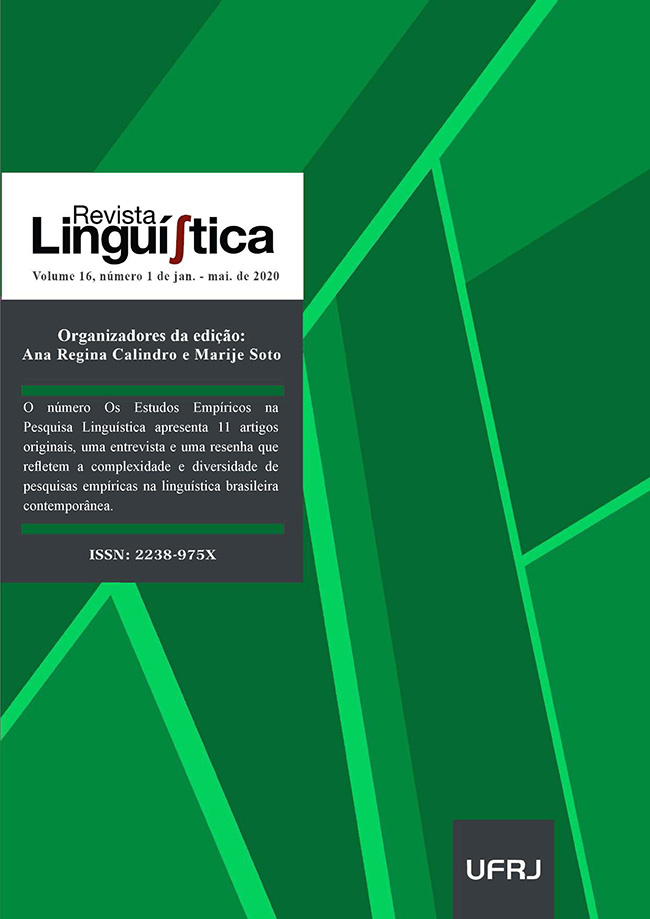O impacto do uso linguístico oral em L2 no reconhecimento de palavras por bilíngues tardios do português e do inglês
DOI:
https://doi.org/10.31513/linguistica.2020.v16n1a31593Palavras-chave:
Bilinguismo. Léxico Mental. Lexema. Psicolinguística.Resumo
O objetivo desta pesquisa foi investigar a hipótese de modulação do uso de L2 sobre o reconhecimento por falantes bilíngues do português brasileiro e do inglês de palavras escritas em inglês após sua apresentação oral. Os pares de palavras alvo se distinguem pelas consoantes nasais /m/ e /n/ em final de sílaba (ex.: them /ðem/ ‘eles, elas’; then /ðen/ ‘então’) porque o contraste fonotático na organização silábica do inglês e do português acarreta impactos sobre o valor fônico atribuído por leitores a grafemas compartilhados pelas convenções ortográficas dessas línguas e que ocorrem em posições grafotáticas análogas na ortografia de sílabas das duas línguas. A investigação ocorreu a partir do rastreamento ocular em experimentos baseados no Paradigma Mundo-Visual (TANENHAUS et al., 1995; TANENHAUS; SPIVEY-KNOWLTON, 1996). O construto “uso linguístico oral” foi operacionalizado através de auto-declaração dos participantes em resposta a itens adaptados do questionário utilizado por Valadares (2017). Os participantes foram 28 brasileiros e nove falantes nativos de língua inglesa. A análise mostrou que maior uso linguístico oral em L2 afeta a capacidade discriminatória dos falantes não nativos. Nossos resultados indicam que o uso é um fator tão relevante na constituição de representações sonoras do léxico em L2 quanto se hipotetiza, a partir da Teoria de Exemplares (BYBEE, 2001, 2010; JOHNSON, 1997, 2005; PIERREHUMBERT, 2001, 2003), que o é na constituição de representações análogas em L1.
Downloads
Downloads
Publicado
Edição
Seção
Licença
Autores que publicam na Revista Linguí∫tica concordam com os seguintes termos:
Os autores mantêm os direitos e cedem à revista o direito à primeira publicação, simultaneamente submetido a uma licença Creative Commons que permite o compartilhamento por terceiros com a devida menção ao autor e à primeira publicação pela Revista Linguí∫tica.
Os autores podem entrar em acordos contratuais adicionais e separados para a distribuição não exclusiva da versão publicada da obra (por exemplo, postá-la em um repositório institucional ou publicá-la em um livro), com o reconhecimento de sua publicação inicial na Revista Linguí∫tica.

A Revista Linguí∫tica é uma revista do Programa de Pós-Graduação em Linguística da UFRJ e se utiliza da Licença Creative Commons - Atribuição-NãoComercial 4.0 Internacional (CC-BY-NC)









